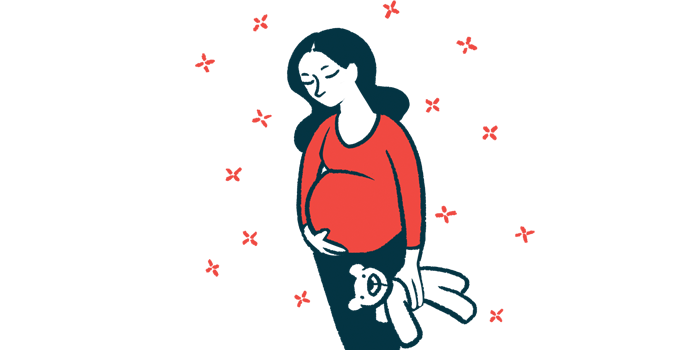Multiple pregnancies linked to worse lung function, preterm labor
Women with 3 or more prior pregnancies at risk of some complications: Study
Written by |

Women with cystic fibrosis (CF) who have been pregnant three or more times are more likely to experience a greater decline in lung function and, when 30 or older, to give birth to preterm babies or babies with complications, a study has found.
Lung function appeared to decline more rapidly in women who had pancreatic insufficiency, which occurs when thick mucus prevents the pancreas from releasing enough digestive enzymes, and in those who carried two mutations leading to more severe symptoms of CF.
The study, “Maternal and Fetal Outcomes in Multiparous Women with Cystic Fibrosis,” was published in the journal Respiratory Medicine.
Pregnancy usually safe for women with CF and their babies but carries risks
Available treatments have helped people with CF live longer, with many wanting to become a parent. While pregnancy is usually safe for women with CF and their babies, there may be risks. Women with poor lung function are more likely to give birth to preterm or low-weight babies, and lung function can worsen after delivery.
However, not much is known about women with CF who have given birth multiple times. To know more, an international team of researchers compared the outcomes of a first or second pregnancy with those of a third or later pregnancy in 18 centers worldwide.
The study included 141 women with CF, ages 18 to 45, who had been pregnant between 1973 and 2020; 41 (29%) had been pregnant three or more times. Nearly half (47.8%) had pancreatic insufficiency, and 54.3% had a lasting infection with Pseudomonas aeruginosa bacteria.
Women who had been pregnant three or more times had significantly shorter pregnancies than those with fewer pregnancies (37.3 vs. 39.1 weeks). They also experienced a greater decline in lung function, measured as a decrease in the average percent predicted forced expiratory volume in one second, or ppFEV1 (7.8% vs. 2.5%).
Among women with multiple pregnancies, notable ppFEV1 decreases were found in those with pancreatic insufficiency (by a median 7.1%) or two disease-causing class 1, 2, or 3 mutations leading to more severe symptoms (by 7%).
Babies born earlier to women 30 and older, with at least 3 prior pregnancies
Women who were 30 or older gave birth to babies at an average 35.4 weeks of pregnancy if they had been pregnant three or more times. If women in this age group had been pregnant fewer times, their babies were born at an average of 37.8 weeks.
Moreover, women who had been pregnant three or more times were more likely to give birth to babies with complications (26.5% vs. 7%). They also tended to gain less weight during pregnancy (mean 7.6 vs. 10 kg, or about 16.8 vs. 22 pounds).
“Multiple pregnancies in [women with CF] are associated with accelerated respiratory [breathing] deterioration and higher rates of preterm births,” the researchers concluded. “Therefore, strict follow-up by a multidisciplinary CF and obstetric team is needed in women who desire to carry multiple pregnancies.”






